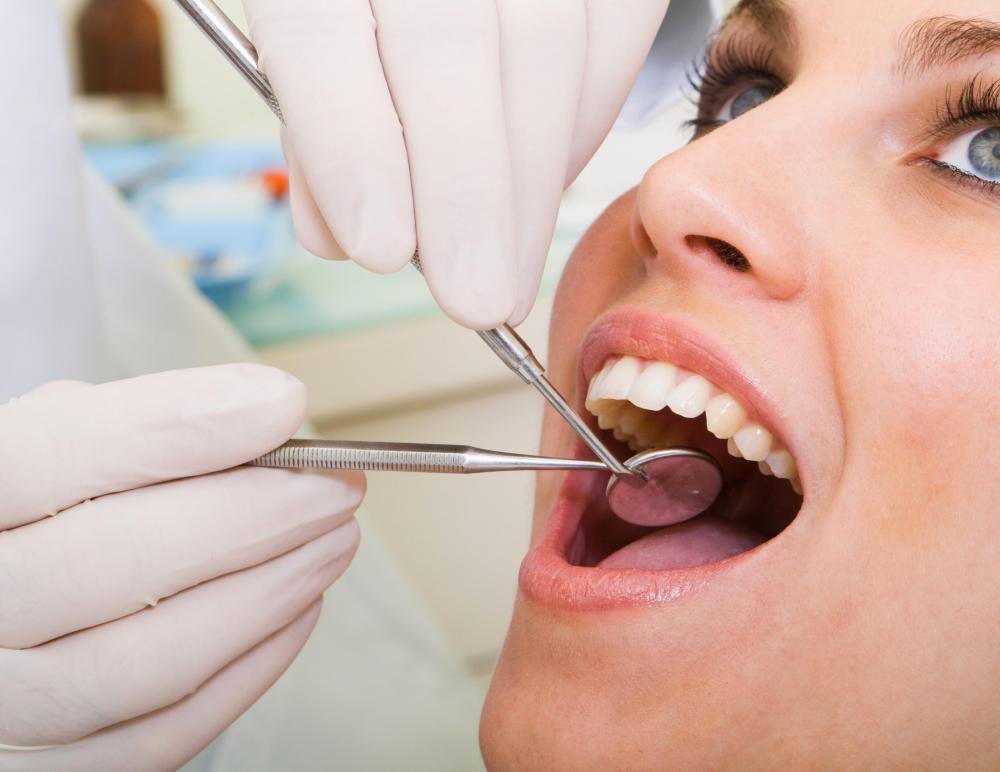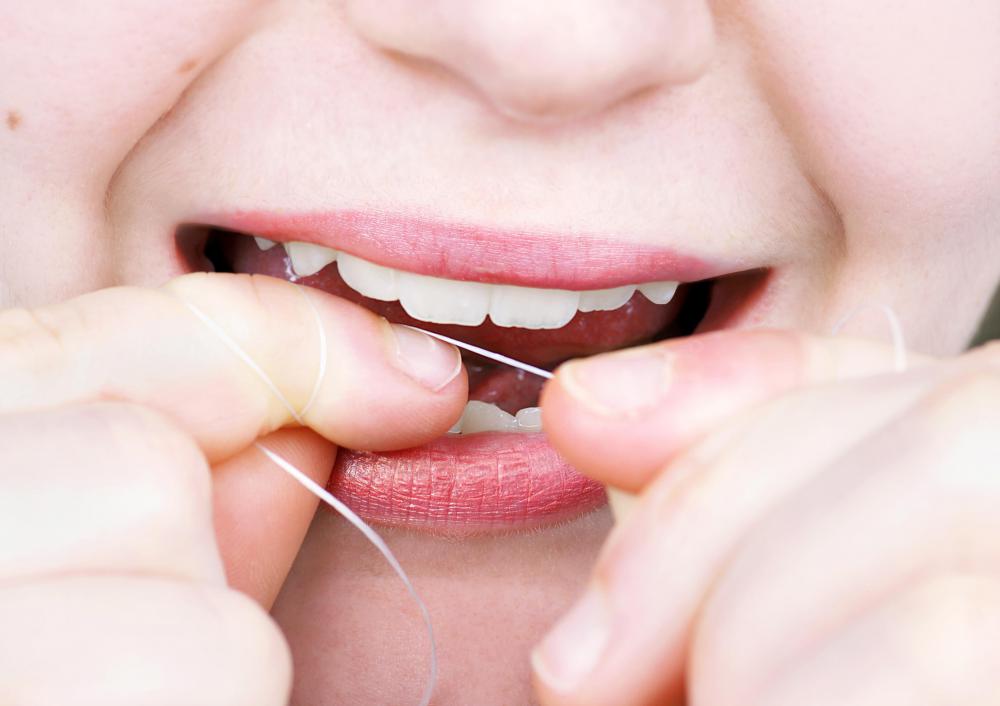At TheHealthBoard, we're committed to delivering accurate, trustworthy information. Our expert-authored content is rigorously fact-checked and sourced from credible authorities. Discover how we uphold the highest standards in providing you with reliable knowledge.
What Some Causes of Bleeding Gums?
Bleeding gums often arise after vigorous brushing of the teeth. This is sometimes mistaken for a normal reaction but can be an indicator of gum disease. Chronic bleeding of the gums may signify more serious underlying conditions such as anemia or leukemia.
The most common cause of bleeding gums, however, is incomplete removal of plaque at the gum line. This leads to gingivitis, or inflammation of the gums. If plaque is not regularly removed from the teeth, it will harden and form tartar. Tartar increases bleeding and may cause periodontitis, an advanced form of gum disease in which the gums separate from the teeth.

Another frequent cause of gum bleeding is injury or trauma. Improper flossing or brushing, tooth picking and ill fitting dentures can all cause injury to the gums. Burns caused by hot foods, blows to the face, or insertion of foreign objects may also contribute to bleeding.
Nutritional deficiencies may result in bleeding gums in rare cases. Vitamin C deficiency, also known as scurvy, can lead to bleeding and inflammation. Niacin deficiency, or pellagra, causes thrush, infection and gum bleeding. These deficiencies can be treated with supplements and improved diet.

The use of medications such as calcium channel blockers can cause an overgrowth of gum tissue. This makes plaque removal more difficult and increases the risk of gingivitis. Aspirin and other blood thinning medicines prevent blood clotting by blocking enzymes that heal torn blood vessels. This often causes bleeding gums in patients of aspirin, warfarin, or heparin therapy.

Viral and fungal infections are another source of bleeding gums. Acute herpetic gingivostomatitis is a viral infection caused by the herpes simplex virus. It results in painful, bleeding and red gums. Thrush is a fungal infection caused by overgrowth of bacteria in the mouth. These bacteria form a white film in the mouth that irritates the gums and results in bleeding.

Hormonal changes experienced during pregnancy can worsen mild gingivitis, causing the gums to bleed. Menopausal women are also prone to bleeding gums. Declining estrogen levels cause shrinking and drying of the gums. As the gums shrink, they separate more easily from the teeth, giving bacteria and tartar a place to collect.
Bleeding gums can often be prevented by proper dental hygiene, regular visits to the dentist and a balanced diet. If the bleeding is severe or chronic, or accompanied by other unexplained symptoms, a health care provider should be consulted immediately.
AS FEATURED ON:
AS FEATURED ON:



















Discussion Comments
Most natural treatments at home are safe when taken wisely with a little bit of common sense.
@goldensky - One of the main causes for bleeding gums when your brushing could be hardened tartar that may be pushing against the gum. Bleeding of the gums can also occur while your eating, say for instance an apple.
Using a soft toothbrush is a good idea for you, but flossing is very important and may be the best thing for you. Your gums are soft and until you do enough flossing they will continue to bleed.
Having your teeth professionally cleaned on a regular basis will help reduce the hardened plaque and bacteria build up which will in time eliminate the bleeding. But remember you have to maintain good oral hygiene in between those visits.
When I brush my teeth I get bleeding gums. I use a very soft toothbrush because my teeth are very sensitive but my gums still bleed. Please, how do I stop my gums from bleeding when I brush?
My doctor had me on progesterone cream and low doses of estrogen during early menopause. A few weeks after I started the treatment my teeth were getting really sore with bleeding gums.
When I mentioned this to him he stated that it was just part of aging and that bleeding gums are symptoms of menopause. It was on my next dental visit that my dental hygienists informed me that the progesterone is what was causing my gums to bleed.
I began using an oral progesterone instead of the high dose cream and now my gums don't bleed anymore and my teeth aren't near as sensitive.
Post your comments